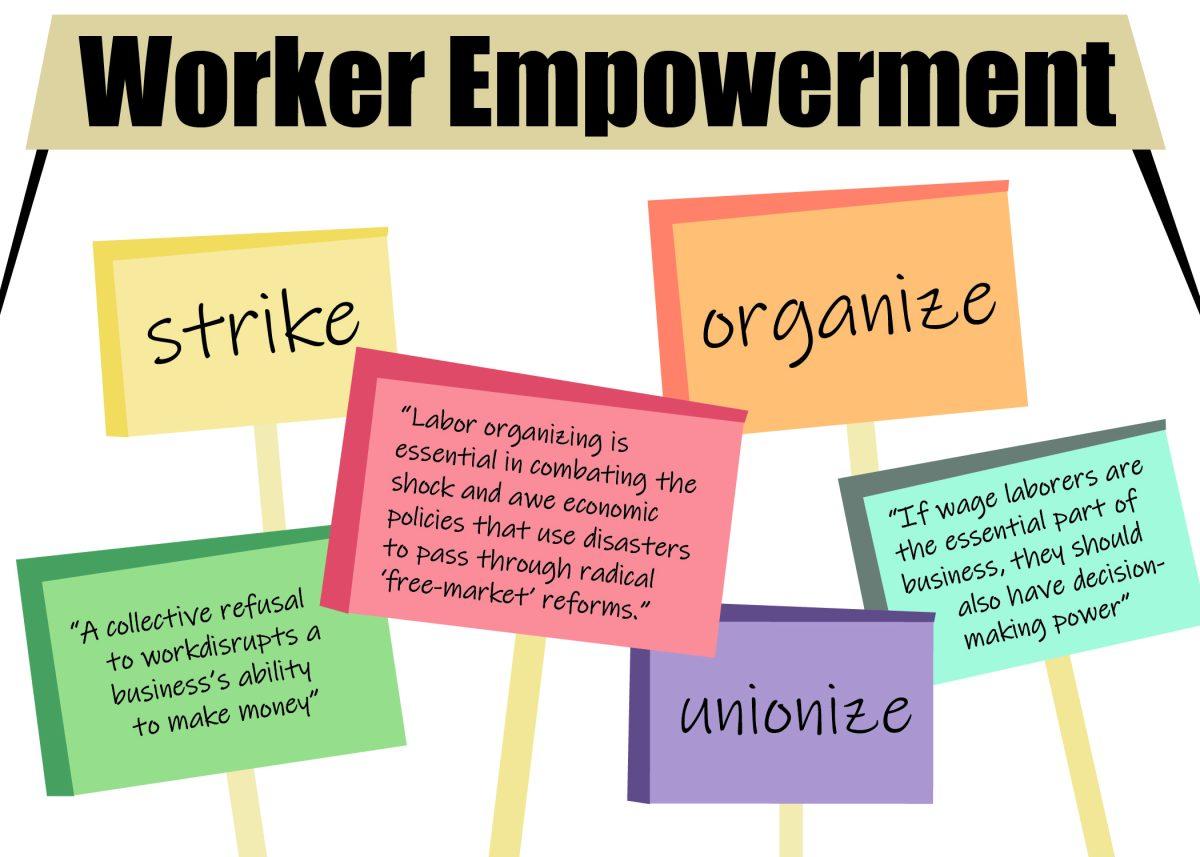_Noah Wright is a sophomore constitutional democracy major at MU. They are an opinion columnist who writes about politics for The Maneater._
Congress has once again failed to pass a bailout for the American people and will be on break until after the 2020 election. After issuing a $1,200 stimulus check to qualifying citizens in April, lawmakers have failed to offer any more assistance to struggling Americans. This response is appalling, but unsurprising given the federal government’s COVID-19 response thus far.
Upon examining the government’s actions taken during the 2008 financial crisis, it appears capitalism solves economic crises following a set playbook: bailouts for big business, tax breaks for the rich, cuts on regulations and thoughts and prayers for everyone else.
Watching our tax dollars flow into the hands of the companies whose reckless actions cause an economic crisis every decade is disheartening. We are told to vote, yet both parties seem more accountable to Wall Street donors than to the working family. Dealing with a government that looks more like a corporate oligarchy than a democracy, the working class must bring out the biggest gun in its arsenal: the general strike.
Labor organizing is essential in combating the shock and awe economic policies that use disasters to pass through radical ‘free-market’ reforms. These reforms usually follow a Friedmanite playbook of cutting regulations, curbing labor protections and lowering taxes on the wealthy. Despite the exploitation and economic crises that inevitably follow, under the stress of a crisis like war or widespread disease their implementation is made easy.
According to Pew Research the average wage of the American worker has the same purchasing power as it did in 1978, adjusting for inflation. Wages have remained the same, yet worker productivity has increased by over 60% in the same time period, according to the Economic Policy Institute.
Four decadeslong wage stagnation is the subject of much debate, but the decline of unions is often cited as a key factor. The American worker is not outnumbered, but woefully out-organized. According to the Bureau of Labor Statistics, union membership has decreased from 20.1% in 1984 to a low of 10.5% in 2018.
While the working class has remained economically stagnant, the wealth of those at the top has done nothing but increase. Since the start of the COVID-19 pandemic, billionaires have increased their wealth by nearly a third. Unsurprisingly, income inequality in the U.S. is at its highest level in 50 years.
When President Donald Trump cites the low unemployment rate and booming stock market (pre-COVID-19) as evidence of his economic genius, the average American must ask themself if they’re in the group that’s truly benefiting. If the economy is growing, why has workers’ share in this wealth done nothing but decrease over the past fifty years? Clearly, the rules of the game are stacked against us.
The working class must not forget that they are the majority. No product is made, no service accomplished and no transaction is completed without labor. If we are not seeing the fruits of our labor — an essential function of capitalism — we must use the power we have and remind the elite who is in charge.
The best way to organize in a large scale fashion would be to join a labor union, but this is no easy task. The decline of unions is a result of deliberate actions taken by conservative governments (right-to-work laws) and corporate oligarchs afraid of union power. Nonetheless, anyone can and should organize with their economic interest group.
With strengthened unions, effective strikes become all the more powerful. A collective refusal to work disrupts a business’s ability to make money. Money is seemingly the only language the rich understand. A business can function without a CEO, but not without labor.
Individual strikes across the country have the potential to create better conditions and higher wages for those workers, like Oklahoma teachers who successfully earned an average $6,000 pay increase after going on strike in 2018. However, a mass general strike is required to make lasting nationwide change. It will take more labor organizing to get to that point, but a general strike is the single most effective way of wrestling economic control into the hands of the people.
Worker empowerment is not limited to unions and strikes, it also leads to new forms of organizing a company. If wage laborers are the essential part of business, they should also have decision-making power.
The organization of a democratic workplace will get rid of unnecessary administrative positions and leave the decisions of the company up to a popular vote by those who will be most affected by it. To date, there are around 300 workers cooperatives in the U.S., proving that a different system is possible. Worker-run business’ realign the priorities of a company away from shareholders and short-term profit, and towards the benefit of the consumer and laborer.
From fast-food workers to teachers, anyone can organize and strike. As MU students, we have the unique position of functioning as the primary laborer and consumer for the product: education.
This allows student strikes to be especially effective. We already have our hands on the purse strings. If the MU administration isn’t listening to student concerns, a common complaint against our current leadership, we should consider using the power we have to shape policy that benefits us.
Above all else, organize. Join a union, start a strike and resist the merciless exploitation given to us by corporate powers and the government they control.
_As part of our commitment to social justice initiatives, we at The Maneater encourage you to consider making a donation to Philadelphia Community Bail Fund, an organization committed to ending bail and assisting the incarcerated amidst Black Lives Matter protests.
_The link to donate is https://www.aplos.com/aws/give/PhiladelphiaCommunityBailfund/general
_Edited by Sofi Zeman | [email protected]_














